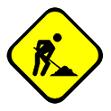Journey: Roles
Let's talk about roles, shall we?
Roles
The standard Journey party is assumed to consist of four to five characters: a warrior, an explorer, an artisan, a mediator, and a lorist. A party need not have a lorist; in a party of four, a lorist can make up for the absence of a character of a specific role.
However, we have also mentioned that a party does not have to obey this. A combat-heavy game, for instance, may consist almost solely of warriors, with perhaps an explorer and/or a mediator. A game focused more on social interaction will have a bunch of mediators, perhaps a lorist or two. A Harvest Moon style game will have explorers and artisans, and almost no warriors or mediators.
If this is the case, then, we need to expand upon the idea of roles and what they do. In particular, their approaches to their given aspect of the game.
Jobs
In addition to roles, let's talk about jobs, a new concept in Journey. A job is the approach the character takes to the subject of their role: another word might be "subrole."
The jobs are as follows.
- Leader. The leader buffs and supports the group in ways relevant to their domain, better enabling them to succeed.
- Controller. The controller debuffs things relevant to their domain, impeding them or otherwise preventing them from acting upon the group.
- Defender. The defender protects the group against things relevant to their domain, soaking resource loss.
- Striker. The striker actively works towards achieving the goal within their domain.
If these look like terms we've stolen from 4e, that's because they are. However, you'll notice that the definitions are a little more awkward, because the definition of roles - and what they do - has been slightly interfered with so that we can better develop specials and what-not.
